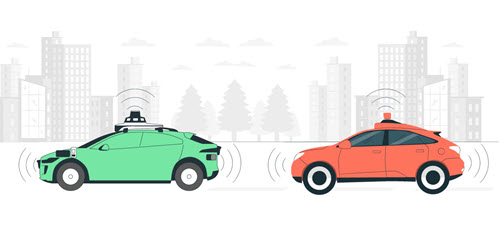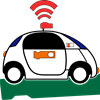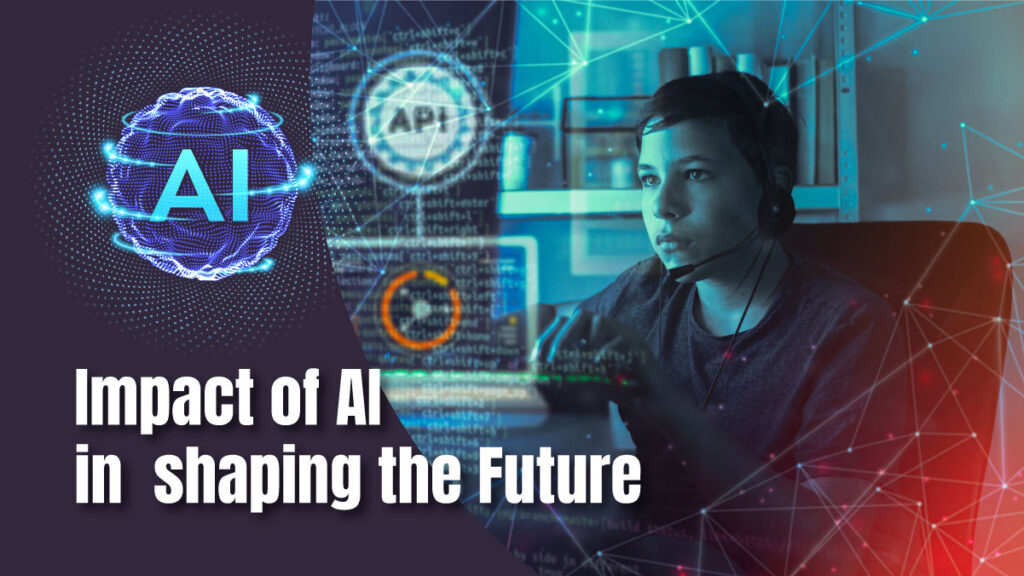Artificial intelligence (AI) is a powerful force that is changing the way we live, work, and interact with the world. It is no longer a futuristic concept but a real technology that is already having a profound impact on our lives.
AI is the ability of machines to perform tasks that typically require human intelligence. The impact of AI technology includes things like learning, reasoning, problem-solving, and understanding language. AI is being used in a wide range of industries, including healthcare, finance, education, and entertainment. It is helping to improve productivity, provide better services, and create new opportunities. As the impact of AI technology continues to expand, it is informative to understand how it has evolved over the years.
Here are 9 key milestones in the development of AI:
1. Turing Test
In 1950, a brilliant scientist named Alan Turing devised a way to determine if a machine could be as intelligent as a person. He named it the ‘Turing Test‘. According to this test, if the machine generated answers and interacted with the user as if it were a person, it would be considered a smart, inventive technology. This was the first time someone considered comparing artificial intelligence to human intelligence. Even after over 70 years, the Turing Test remains very important, influencing how AI technology has shaped the capabilities of tech-powered machines.
2. Rise of Expert Systems
In the 1960s and 1970s, the development of ‘expert systems’ was a major breakthrough in artificial intelligence (AI). Back then, these computer programs, mimicking human decision-making, played a pivotal role in applying AI to solve real-world issues. Expert systems have two main parts: the knowledge base which is the machine’s brain storing facts and rules and inference engine which is the decision maker that uses that information to make smart choices.
3. Machine Learning
In the 1980s, AI got a cool upgrade with machine learning! Now, computers could learn from data without having strict rules. It was way better than the old AI because it could handle real-world scenarios and adapt to new situations. It learned to do remarkable things like recognizing images and understanding speech, furthering the impact of AI technology. That laid the groundwork for the AI we use today.

4. Natural Language Processing (NLP) Advancements
In the 2000s, AI improved its ability to understand and use human language, thanks to tech giants like IBM’s Watson and Google’s BERT. Watson even won a quiz show against humans! BERT, in 2018, made a big leap by understanding words in sentences. These language upgrades showcased the strong impact of AI technology as machines now became way smarter in chatting with us, giving helpful answers, and even understanding our feelings through written words.
5. Deep Learning
In the 2010s, deep learning made a big impact in AI with stronger computers, better algorithms, huge datasets, and open-source tools. Machines could now be taught to customize tasks for specific industries like finance, healthcare, and manufacturing.
6. Self-Driving Cars
The 2010s brought us closer to self-driving cars, thanks to AI and sensors. Waymo and Tesla led the way, using AI to see and understand the road, plan routes, and drive safely. Waymo has driven over 20 million autonomous miles, and Tesla’s autopilot has made a big step toward self-driving. Challenges remain, like handling unexpected situations and getting everyone on board, but with advancing tech and public interest, self-driving cars could be a big part of our future!

7. AlphaGo
In 2016, Google’s AlphaGo, a computer program that plays the board game Go, impacted AI technology. AlphaGo made history by defeating world Go champion Lee Sedol, marking a watershed moment in artificial intelligence. Go, an ancient and complex board game, had long been considered a benchmark for AI, requiring a deep understanding of strategy, pattern recognition, and intuition. AlphaGo’s victory demonstrated that AI had surpassed human capabilities in this challenging area.
8. AI in Healthcare
Currently, AI is changing healthcare by diagnosing patients, developing treatment plans, and lowering costs. AI can now analyze X-rays and CT scans for faster, more accurate diagnoses. It helps speed up drug discovery and the creation of new medicines. AI also suggests personalized treatments by reviewing patient data through medical records management. AI is finding new cancer treatments and holds promise for improving healthcare services worldwide.
9. AI in Natural Language Understanding
Also ongoing is AI’s journey in Natural Language Understanding, with breakthroughs like GPT-3 transforming text generation and comprehension. In 2021, DALL-E amazed us by creating images from text prompts. In 2022, ChatGPT introduced a chat-based interface, showcasing how AI’s improving language abilities reflect the impact of AI technology.
Impact of AI Technology and TechnoKids

Having explored the AI timeline, it’s clear that AI will play a crucial role in the future. Exciting news! You can prepare your students with future tech savvy using TechnoBot AI! This curriculum integrates design thinking and empowers students to create innovative AI solutions for real-world issues. TechnoBot AI empowers students as future inventors by fostering empathy, building creativity, and developing problem-solving skills.
